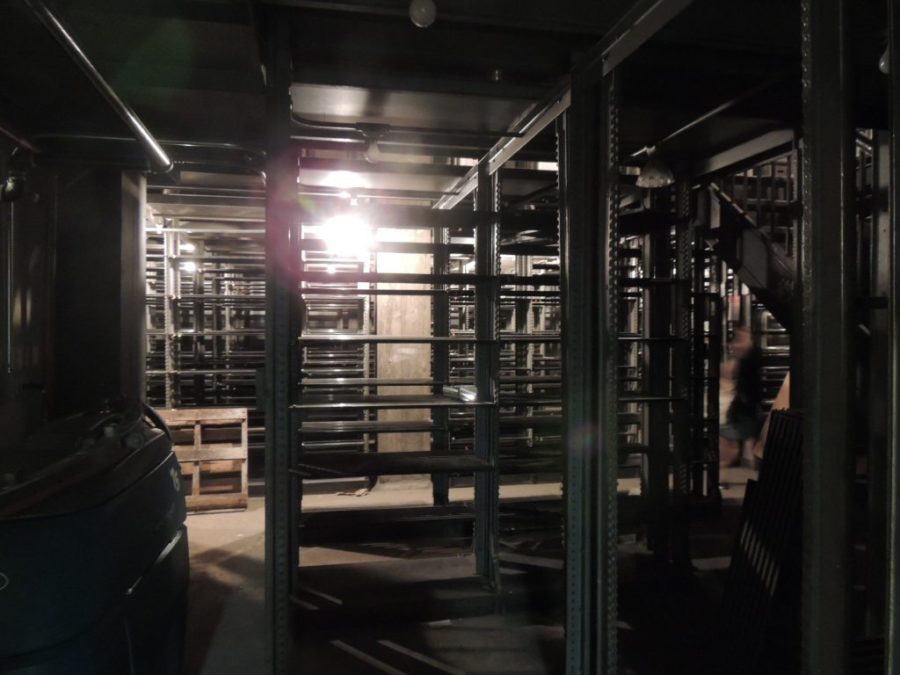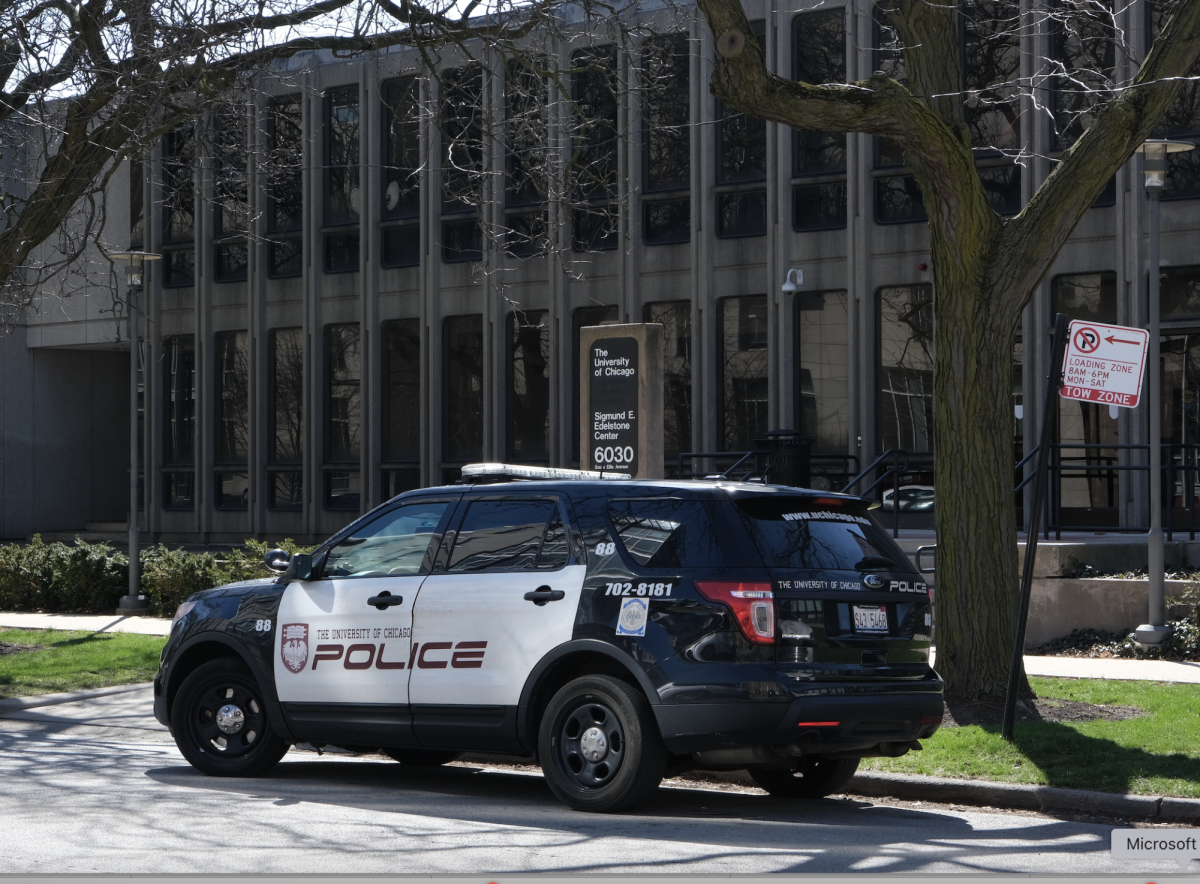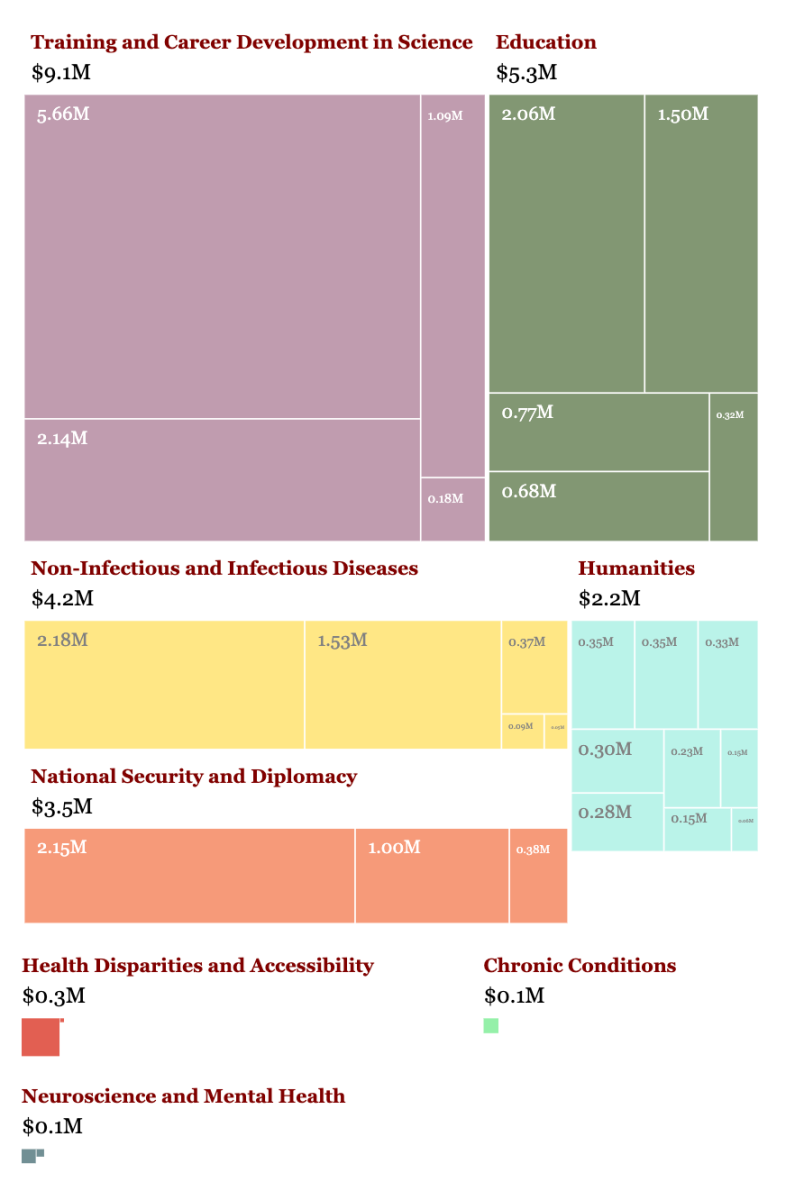The man in the photo—let’s call him Sam—has dark hair, parted to his left. His expression is serious as he looks into the lens of the camera; if you look closely, his head is cocked to the side, with a sense of tentativeness. He’s studious, he buttons his shirts all the way to his neck, his go-to Ex order is a tall black coffee. At least, that’s the type of person I imagine him to be. There’s only so much one can garner from a single, dusty picture. Sam was a Ph.D. student in the ’50s, according to the back of a flimsy piece of paper the size of my palm. His grades gradually drop as the list of his classes continues until they finally stop altogether. He was only a few credits away from finishing his Ph.D. in English. What stopped him from reaching the finish line when it was a mere few steps away?
The history of his time at the University sat forgotten in the abandoned basement of Harper Memorial Library for three-quarters of a century, tossed in with tattered Japanese translation books, old IBM electric typewriters, and a map of the overhead light systems. It was Brian who rescued all of these, neatly storing them into a diploma folder he also found on one of his adventures: the same maroon leather one that graduates still receive.
For Brian, it all started with another website article—“The Adventurers’ Guide to Exploring Harper Memorial Library”. The article, written anonymously, features a photo of the Harper basement; a fluorescent light peeks through the empty metal shelves. Brian tells me that this image was what captivated him.
“I was surprised that this was something that was on campus and I wanted to know more,” he tells me. He pulls up another link, this time a Reddit thread. According to a user writing 10 years ago, there was a private Wikipedia page on how to get to all these places. He clicked on the link, underlined as if calling his name…only to be met with a blank screen. The page had been deleted.
After hours and hours of searching down this rabbit hole, he was left with nothing. I, a person who is admittedly lacking in the department of adventuring or thrill-seeking, would have closed my laptop, crawled into bed, and called it a day. But Brian saw it as a challenge: he decided he would compile everything.
Thus began Brian’s new quest, in March of 2020, to seek out these “secret places.” He wasn’t particularly experienced in the field of urban exploration. Rather, it came from a place of pure curiosity and perhaps a desire for some type of excitement in the “beginning days” of the pandemic. “Something to occupy the time” is how he phrases it. During the day, he takes leisurely strolls around campus, scoping out where the hidden passages between buildings might be. Long after the sun sets, he breaks through grates into dark basements and sneaks through windows to empty roofs. He stealthily avoids UCPD officers too, à la James Bond.
But he isn’t the only explorer here on campus. Some were once Brian’s protégés, reaching out to him as first-years for a “secret tour” after finding his website. Others have found their way on their own, leaving behind event posters to be discovered by fellow explorers. One poster, a vibrant neon blue only possible for freshly printed paper, renders a jarring contrast against the peeling white paint of the dimly lit hallway in which it was found. The date is an upcoming one, too. Does the invitation feel like a personal one when you know you’re among a select few who will view it?
It’s a clever marketing tactic. But it also symbolizes a silent knowledge that as individuals, these explorers are a part of something bigger. Even if they may never cross paths, they are a part of a select group that knows about these places and how to get to them.
I wonder if that is, at the heart, why it meant so much to Brian to embark on this journey. That, beyond the thrill of it all, the hidden places provided him with a space of his own. A space to feel connected to the campus, to have a sense of belonging, in a time where that was stripped away from so many.
Even now, he still finds a home in his hidden places that he calls his own. When I ask him what his favorite spot is, he tells me that he likes to spend time in the basement of Ryerson when he “needs a break.” I try to imagine myself in that basement too, surrounded by whirring machines and abandoned lab rooms with flickering lights (sounds more like a scary opening of a movie, but I can see the appeal). While they may not be everybody’s cup of tea, these secret places aren’t just forbidden. They’re personal. Adventurers past have left their marks on them: pillars scribbled with initials, roofs littered with empty Solo cups. I can’t help but picture the scenes. What promises were exchanged as a couple scrawled a heart around their initials? How many drunken laughs were shared looking up at the stars?
Here at UChicago, many of our other shared experiences aren’t so pleasant: anxiously glancing between our haphazardly typed, last-minute essays and the ticking digital clock on the laptop. We find ourselves caught in this academic hamster wheel, running from one deadline to the next for nine weeks. But that’s what makes these personal, sacred places—forbidden or not—all the more meaningful. The notion of self-discovery is a deeply integral part of our college expectations. In Brian’s words, we find meaning in these spaces to “take our mind off” things, to be alone with ourselves—and perhaps college is the first time that we are afforded the freedom to do so.
It’s here that I think back to Sam and wonder whether he had his own secret place to call home too. Though I might not be marching toward a Ph.D., I feel a certain kinship with him and his academic struggles. (To my dismay, it turns out his favorite spot was definitely not Ex Libris; the cafe wasn’t around when he was here.) Sam might not have completed his academic career at the University, but he went on to have a successful career as the head of a department at a state university. According to a news article, he died in the ’80s; his eulogy regarded him as a loving, kind, and supportive professor to his students, husband to his wife, and father to his children. I like to think that Sam, on his last day on campus, went to his secret place—that he closed his eyes, took in a deep breath of the newly-blooming flowers of the spring quarter, and realized that he might be all right after all.









